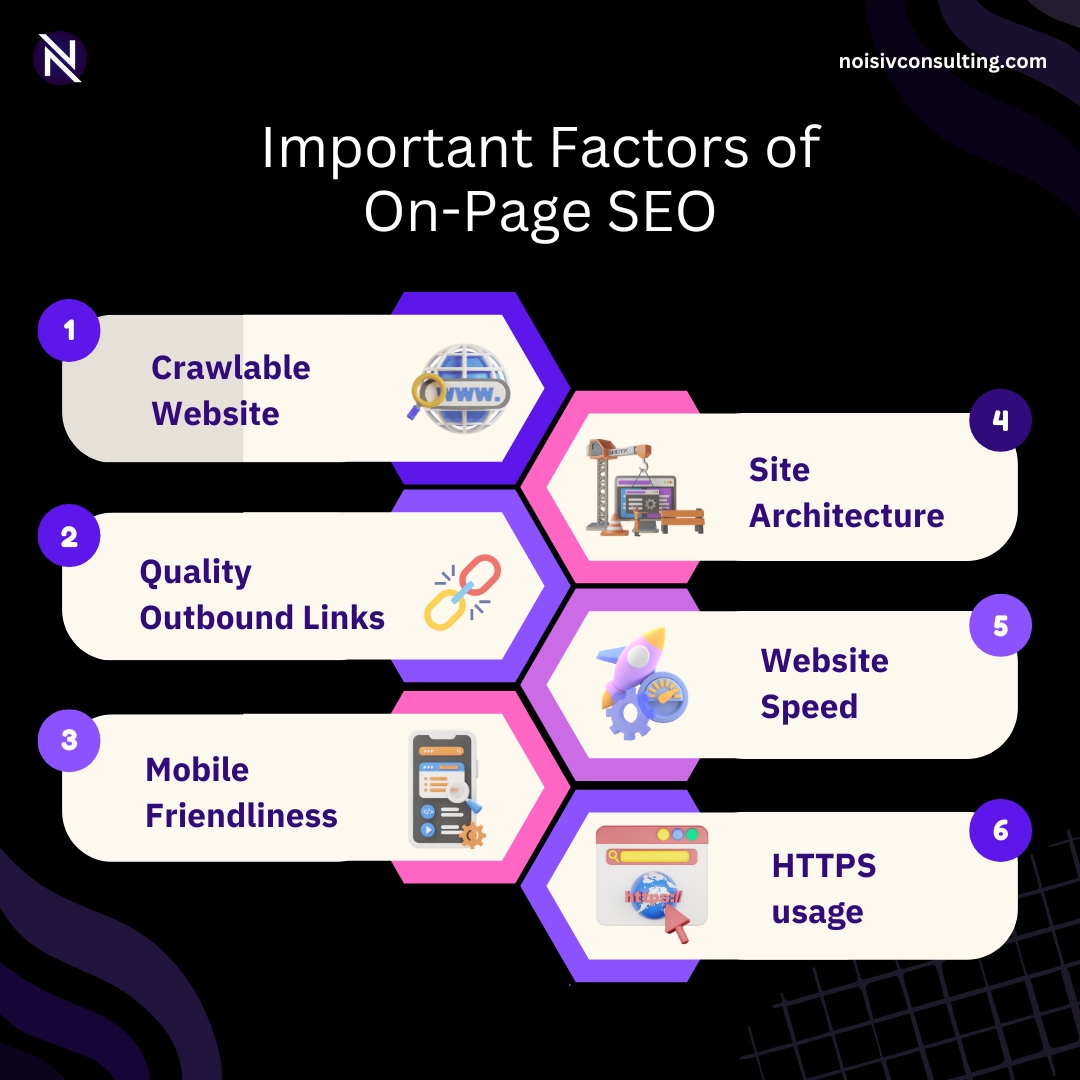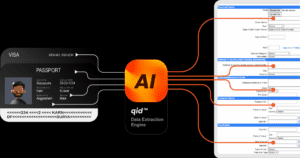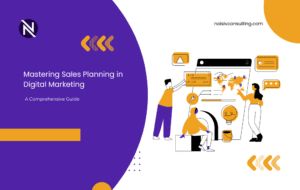In the ever-evolving landscape of digital marketing, Search Engine Optimization (SEO) remains a cornerstone for online visibility and success. While the realm of SEO encompasses various strategies, both on and off the page, on-page SEO plays a crucial role in enhancing a website’s visibility to search engines and users alike. In this blog, we’ll delve into six vital factors of on-page SEO that can significantly impact your website’s performance and search rankings.
Crawlable Website (On Page SEO)
Before your website can rank in search results, search engines must first discover and index its content. This process begins with crawling, where search engine bots systematically navigate through web pages to understand their content and structure. Therefore, ensuring your website is crawlable is fundamental to SEO success.
Tips for Ensuring Crawlability:
- XML Sitemap: Create and submit an XML sitemap to search engines, providing a roadmap of your website’s structure and content for efficient crawling.
- Robots.txt: Use a robots.txt file to guide search engine bots on which pages to crawl and which to ignore, optimizing crawl budget and resource allocation.
- Internal Linking: Implement a strategic internal linking structure to facilitate navigation between pages and distribute link equity throughout your website.
Site Architecture
The architecture of your website not only influences user experience but also impacts search engine crawling and indexing. A well-organized site architecture ensures that both users and search engines can navigate your website seamlessly, leading to improved visibility and rankings.
Best Practices for Site Architecture:
- Logical Hierarchy: Organize your website’s content into a logical hierarchy, with broader categories and subcategories that reflect the topical relevance of your content.
- Breadcrumb Navigation: Implement breadcrumb navigation to help users and search engines understand the hierarchical structure of your website and navigate between pages effortlessly.
- URL Structure: Use descriptive and SEO-friendly URLs that reflect the content of the respective web pages, making it easier for search engines to interpret and rank your pages.
Quality Outbound Links
Outbound links, or links from your website to other authoritative and relevant sources, play a vital role in SEO. By linking to high-quality external resources, you demonstrate credibility and expertise in your field while enhancing the user experience by providing additional valuable information.
Considerations for Quality Outbound Links:
- Relevance: Ensure that outbound links are contextually relevant to your content and provide additional value or insights to your audience.
- Authority: Link to reputable and trustworthy websites that are recognized as authorities in your industry or niche, enhancing the credibility of your own website.
- Anchor Text: Use descriptive anchor text that accurately reflects the content of the linked page, optimizing both user experience and search engine visibility.
Website Speed
In today’s fast-paced digital world, users expect websites to load quickly and efficiently. Website speed not only influences user satisfaction but also plays a crucial role in search engine rankings, with faster-loading sites often receiving preferential treatment in search results.
Strategies for Improving Website Speed:
- Optimize Images: Compress and optimize images to reduce file size without compromising quality, thereby minimizing load times.
- Minify Code: Minify HTML, CSS, and JavaScript files to remove unnecessary characters and reduce file size, improving website performance.
- Caching: Implement browser caching and server-side caching mechanisms to store static resources and reduce server response times for returning visitors.
Mobile Friendliness
With the proliferation of mobile devices, optimizing your website for mobile users is no longer optional—it’s essential. Mobile-friendliness not only improves user experience but also aligns with search engine algorithms that prioritize mobile-responsive websites in mobile search results.
Key Elements of Mobile Friendliness:
- Responsive Design: Adopt a responsive web design approach that ensures your website adapts seamlessly to various screen sizes and devices, providing a consistent user experience across platforms.
- Mobile-Friendly Testing: Use Google’s Mobile-Friendly Test tool to assess and identify any issues that may affect your website’s performance on mobile devices, and address them promptly.
- Fast Loading Times: Prioritize mobile website speed by optimizing images, minimizing server requests, and implementing efficient caching mechanisms to enhance the mobile user experience.
HTTPS Usage
Security is paramount in today’s digital landscape, and HTTPS encryption is a critical component of a secure web environment. In addition to safeguarding user data and enhancing trust, HTTPS usage is also a ranking factor in Google’s search algorithm, providing a boost to websites that prioritize security.
Steps to Implement HTTPS:
- SSL Certificate: Obtain and install an SSL (Secure Sockets Layer) certificate from a reputable Certificate Authority (CA) to encrypt data transmitted between your website and users’ browsers.
- Update Internal Links: Ensure all internal links on your website use HTTPS URLs to maintain consistency and avoid mixed content issues.
- 301 Redirects: Set up 301 redirects from HTTP to HTTPS versions of your web pages to ensure seamless redirection and preserve search engine rankings.
In conclusion, on-page SEO encompasses a multitude of factors that collectively contribute to your website’s visibility, usability, and success in search engine rankings. By focusing on creating a crawlable website, optimizing site architecture, incorporating quality outbound links, prioritizing website speed, ensuring mobile friendliness, and implementing HTTPS usage, you can lay a solid foundation for SEO success and enhance your website’s performance in search results.








